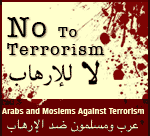
Facing a confused political situation, one should not take his eyes off the big picture: The cedar revolution is not only alive and kicking, it's also getting stronger and it will soon transform the whole region.It is easy for any observer to notice a prevailing sense of disappointment and confusion in a lot of Lebanese these days. Obituaries of the March 14th achievement (the day where the third of the Lebanese population took to the streets in protest to Syrian hegemony, in a rare show of national unity) have been written all over the place.
Doha was
speaking for a lot of Lebanese when she said:
"I'm afraid that after we, as youth, felt that we had some power to make a change, here we're back to the back-burner, back to the purgatory...not hell, but not heaven...a wait and see situation [...] silence and confusion, I can deduce, just like I feel, because I've been refusing to wake up from the dream, [...] I'm refusing to wake up from the dream, to talk sectarianism, because I am embarrassed to."
Rampurple
takes it a step further and says that the Cedar revolution was crap (to the cheers and applauses of
Mardsen). Some took a break from politics, hoping for better days. I personally talked about
Kaek, and
Maya about some hot Lebanese beauty pageant.
Drama and showbiz aside, is the "cedar revolution" really in such bad shape? Did the politicians betray the people of March 14?
The dramatized feelings of doom and gloom in the Lebanese street, media and bloggosphere are the result of two things:
- A sense of helplessness and cynicism long rooted in the Lebanese collective psyche.
This was caused by a bloody history of unfortunate events, back-stabbings, unkept promises and deceptions, causing the average Lebanese to be doubtful, angry and pessimistic.
- A perceived political scene that seems too deja-vu to be a "revolution".
But are Lebanese politics really the same?
Faysal al kassem, the host of the ubiquitous al-Jazeera T.V show
"The Opposite Directions", once introduced his program by saying that the Arab world is filled with contradictions, problems, rivalries, and culture wars, all deeply buried by dictators, who preferred stability over transformative debates that could be very violent. If these dictators are removed, he goes on, the Arab world will be boiling with a high-pitched dynamic of clashes (a glimpse of which his show aims to provide.)
Such a high-pitched dynamic is what is taking place in Lebanon these days. The Syrians are gone and have taken with them a system of centralized command and support. Democracy, like a free-market economy, has no place for subsidies, and the survival is for the fittest. The political brouhaha taking place on the Lebanese scene is an orgy of smoke screens, distortions and plain fabrications that are nothing but the sound of the merciless
"Natural selection" process.
Previously influential politicians (like Sleimen Frangiyeh and president Lahhoud) who were heavily supported by Syria, are going bust. Their kicking and screaming is an attempt to take everyone down with them through alarmist and sectarian rhetoric.
Politicians whose popularity have never been tested in the polls (like Micheal Aoun) are upset by the high barriers-to-entry his popular competitors are raising, so they
throw accusations at them (Hariri and Jumblat are not better than ghazeleh), attempting to strengthen their negotiating power.
Religious figures whose constituencies have gotten demographically weaker in the past years are complaining of the unfairness of the process, where the "others" get to choose their Mps.
Politicians who are too weak to compete are withdrawing from the race, complaining that the elections are not giving a true choice to the people.
The Lebanese politicians have always been fighting, lying, backstabbing and coalescing against each other, but the big difference is this: they are no longer doing it to please the Syrians, they are doing it to impress the Lebanese voter.To be fair, some of the criticism is valid. The electoral law is terrible, popular leaders can abuse their influence to annihilate their weaker rivals (through what is known by political buses). But because the politicians are now accountable to the Lebanese and to history, they understand that doing so would have long-term costs on their image and historical roles.
This is why it is no surprise that the leaders and the outside powers are proving responsible:
Signs are everywhere: Jumblat has left an empty druze seat on his list so that he doesn’t humiliate Talal Arslan. Ghattas Khoury sacrificed a guaranteed seat on the Hariri list for the “greater good”. The Americans, French and Jumblat rushed to allay the patriarch’s concerns by stressing his very important role. Jumblat, Hariri and Quornet Shahwan are making nothing but conciliatory noises in face of Aoun’s aggressivness. Even Hezbollah is doing some
soul searching and are removing from their lists people that are considered provocative. I also expect that the opposition might (just might) leave an empty maronite seat for Franjiyeh in the North.
Thomas Friedman said it best once:
In a Democracy, every day feels like a mess, but after a year, you'll feel that a lot of progress has been made.
Read also:
- Politics of Panic




































